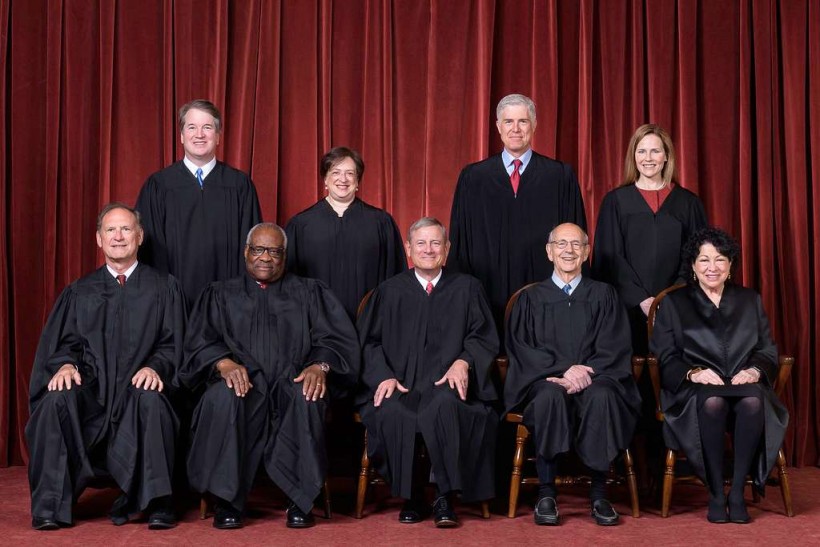The Supreme Court appears inclined to support the Biden administration's efforts to regulate contentious social media content. This comes after a dispute with Republican-led states over the government's authority to address controversial posts on topics like COVID-19 and election security.
During the court proceedings, the Associated Press reported that justices expressed doubts about the claims made by lawyers representing Louisiana, Missouri, and other parties, who accused the Democratic administration of unfairly influencing social media platforms to suppress conservative viewpoints.
Despite lower court rulings favoring the states, the Supreme Court has temporarily halted these decisions while deliberating on the matter. Justices voiced concerns about the potential implications of a ruling in favor of the states, particularly regarding the everyday interactions between government officials and online platforms.
During a recent Supreme Court session, Justice Amy Coney Barrett reacted with astonishment to an exchange between Louisiana Solicitor General J. Benjamin Aguiñaga and Facebook and X.
Aguiñaga raised the question of whether the FBI had the authority to urge these social media platforms to remove posts containing unauthorized personal information disclosure, commonly referred to as doxxing.
Barrett expressed surprise at the frequency of FBI calls to social media platforms during a Supreme Court session, hinting at their common occurrence. Kavanaugh also suggested that a ruling favoring the states could deem routine communications problematic.

(Photo: Picryl | supremecourt.gov)
Navigating Legal Battles Surrounding Content Moderation
The case follows recent discussions on standards for public officials blocking social media followers and arguments over laws in Florida and Texas limiting social media companies' post-takedown abilities based on expressed views.
The cases center around claims of social media platforms censoring conservative views. States allege government pressure on platforms to alter content, implicating speech rights.
Also read: FTC Takes Steps to Enhance Social Media Regulations, Hiring Child Psychologists to Boost Efforts
Aguiñaga asserts government influence violates free speech, while Justice Ketanji Brown Jackson inquires about government encouragement to remove problematic content.
Justice Samuel Alito supports states' arguments, while Fletcher argues against claims of coercion, emphasizing platforms' autonomy in responding to government requests.
Justice Elena Kagan and Kavanaugh compare government-platform exchanges to those with traditional media, highlighting routine interactions in the federal government. Alito suggests similarities between government and media relationships.
Free speech advocates urge the Court to clarify the line between government persuasion and coercion. The 5th Circuit had ruled against the Biden administration's pressure on media platforms, but the Supreme Court temporarily blocked the ruling pending review.
Related Article: Meta Legally Challenges FTC Over Privacy Settlement Expansion, Attempting to Halt Regulations










